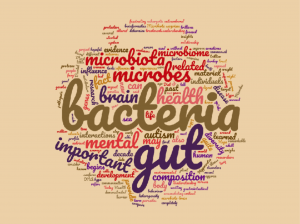TOP ARTICLES

Mood and Microbes, by Jane Foster, PhD
This three-part videos by Jane Foster, PhD, author, professor and leading expert in the microbiome, walks listeners through her research on mood and microbes and how this affects the gut-brain axis. In these three 15-minute videos, you will learn: What do we know about the microbiome? How do microbes communicate

The Neurobiology of Stress
At the 2016 Neurobiology of Stress Workshop in Newport Beach, CA, a group of experts presented the symposium The Microbiome: Development, Stress, and Disease, published in Mammalian Genome. This report, coauthored by leading experts Jane Foster, PhD, John Crynan PhD and colleagues, summarizes and builds upon some of the key concepts

VIDEO: Case Study with Scot Bay, MD on Probiotics and Psychiatry
Do probiotics and psychiatry have a role to play in helping with mood disorders? In this video, from the 2018 Integrative Healthcare Symposium, Scot Bay, MD a practicing psychiatrist and host of Psychiatry Today’s weekly radio show, discusses four case studies for patients with depression and how a multi-species probiotic




